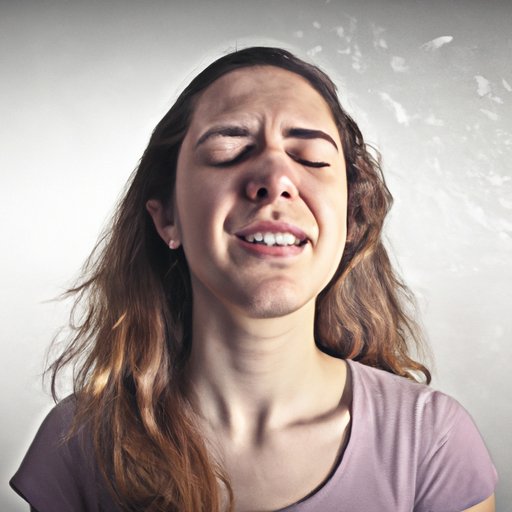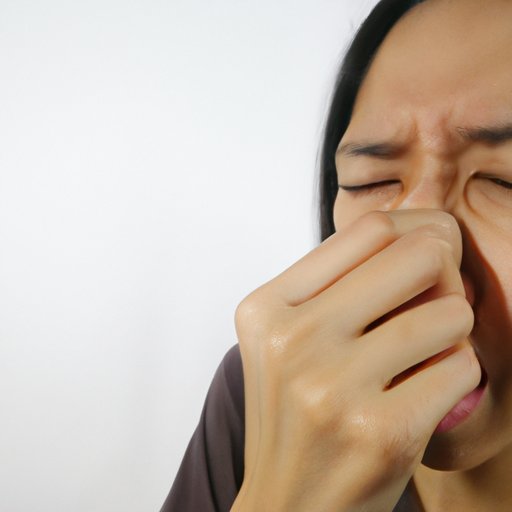Introduction
Sneezing is an involuntary action that occurs when something irritates the nose. It is a reflex act that helps protect the body from foreign particles or harmful substances that may enter the nasal passages. While it may seem like a minor bodily function, understanding how sneezing works can help us better appreciate the intricate processes that keep us healthy.

Exploring the Science Behind Sneezing
When you sneeze, your body responds with a powerful burst of air that carries away whatever was irritating your nose. But what’s actually happening inside your body when you sneeze?
What Happens to Your Body When You Sneeze?
When you sneeze, your body releases a sudden burst of air through your nose and mouth. This expulsion of air is caused by a combination of muscle contractions in your chest, throat, and diaphragm. The force of the air is so strong that it can clear out any irritants that may have been present in the nasal passage.
In addition to the physical expulsion of air, your body also sends out a spray of mucus and saliva. This is because the muscles that help expel air also trigger the production of mucus, which helps trap and remove any unwanted particles or substances that may be in the nose. The mucus and saliva mix together as they are expelled, creating a slimy substance that can help cleanse the nasal passages.
How Does Sneezing Help Keep Us Healthy?
Sneezing plays an important role in helping keep us healthy. By expelling air at such a high velocity, it can help remove any irritants or pathogens that may have entered our nasal passages. This helps protect us from potential infections or illnesses.
The mucus and saliva that is released during a sneeze can also help keep us healthy. The mucus acts as a sticky barrier that traps and removes any unwanted particles, while the saliva contains antibodies that can help fight off any bacteria or viruses that may have been present.
A Closer Look at the Mechanics of Sneezing
Now that we understand the science behind sneezing, let’s take a closer look at the mechanics of sneezing and investigate the causes and effects of this natural bodily function.
Investigating the Causes and Effects of Sneezing
There are many things that can cause us to sneeze, including dust, pollen, smoke, pet dander, and even certain perfumes or fragrances. When something irritates our nose, our body responds by triggering a sneeze in order to remove the irritant.
Sneezing can also have some unexpected effects. For instance, some people report feeling lightheaded or disoriented after sneezing. This is because the sudden burst of air can temporarily disrupt the oxygen flow to the brain, causing dizziness or confusion. Additionally, sneezing can cause your eyes to water and your nose to run. This is because the muscles involved in the sneeze can also cause the tear ducts and nasal passages to become irritated, resulting in these reactions.
What is the Purpose of Sneezing?
At its core, sneezing serves as a protective mechanism for the body. By quickly expelling air and mucus, it can help remove any irritants or pathogens that may have entered the nasal passage. This helps keep us healthy and reduces the risk of infection.
Conclusion
Sneezing is a complex process that involves the body’s respiratory and immune systems. By understanding the causes, mechanics, and benefits of sneezing, we can better appreciate the intricate processes that keep us healthy.
From dust and pollen to bacteria and viruses, sneezing helps protect us from a variety of unwanted particles. It also serves as a warning sign that something is wrong, alerting us to the fact that our body is trying to remove something that doesn’t belong. By recognizing and respecting the purpose of sneezing, we can help ensure our overall health and well-being.
(Note: Is this article not meeting your expectations? Do you have knowledge or insights to share? Unlock new opportunities and expand your reach by joining our authors team. Click Registration to join us and share your expertise with our readers.)
